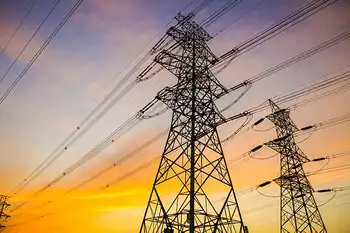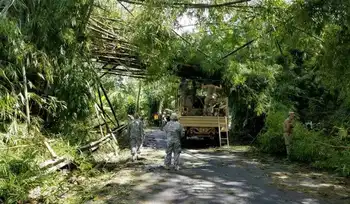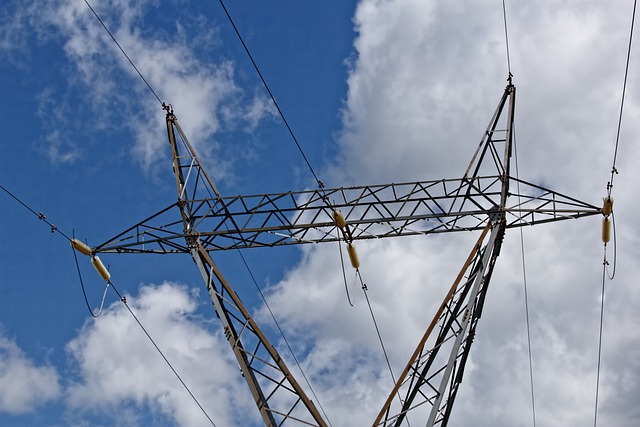Puerto Rico Microgrid Regulations outline renewable energy, CHP, and storage standards, enabling islanded systems, PREPA interconnection, excess energy sales, and IRP alignment to boost resilience, distributed resources, and community power across the recovering grid.
Key Points
Rules defining microgrids, requiring 75 percent renewables or CHP, and setting interconnection and PREPA fee frameworks.
✅ 75 percent renewables or CHP; hybrids allowed
✅ Registration, engineer inspection, and annual generation reports
✅ PREPA interconnection fees; excess energy sales permitted
The Puerto Rico Energy Commission unveiled 29 pages of proposed regulations last week for future microgrid installations on the island.
The regulations, which are now open for 30 days of public comment, synthesized pages of responses received after a November 10 call for recommendations. Commission chair José Román Morales said it’s the most interest the not-yet four-year-old commission has received during a public rulemaking process.
The goal was to sketch a clearer outline for a tricky-to-define concept -- the term "microgrid" can refer to many types of generation islanded from the central grid -- as climate pressures on the U.S. grid mount and more developers eye installations on the recovering island.
“There’s not a standard definition of what a microgrid is, not even on the mainland,” said Román Morales.
According to the commission's regulation, “a microgrid shall consist, at a minimum, of generation assets, loads and distribution infrastructure. Microgrids shall include sufficient generation, storage assets and advanced distribution technologies, including advanced inverters, to serve load under normal operating and usage conditions.”
All microgrids must be renewable (with at least 75 percent of power from clean energy), combined heat and power (CHP) or hybrid CHP-and-renewable systems. The regulation applies to microgrids controlled and owned by individuals, customer cooperatives, nonprofit and for-profit companies, and cities, but not those owned by the Puerto Rico Electric Power Authority (PREPA). Owners must submit a registration application for approval, including a certification of inspection from a licensed electric engineer, and an annual fuel, generation and sales report that details generation and fuel source, as well as any change in the number of customers served.
Microgrids, like the SDG&E microgrid in Ramona in California, can interconnect with the PREPA system, but if a microgrid will use PREPA infrastructure, owners will incur a monthly fee. That amounts to $25 per customer up to a cap of $250 per month for small cooperative microgrids. The cost for larger systems is calculated using a separate, more complex equation. Operators can also sell excess energy back to PREPA.
Big goals for the island's future grid
In total, 53 groups and companies, including Sunnova, AES, the Puerto Rico Solar Energy Industries Association (PR-SEIA), the Advanced Energy Management Alliance (AEMA), and the New York Smart Grid Consortium, submitted their thoughts about microgrids or, in many cases, broader goals for the island’s future energy system. It was a quick turnaround: The Puerto Rico Energy Commission offered a window of just 10 days to submit advice, although the commission continued to accept comments after the deadline.
“PREC wanted the input as fast as possible because of the urgency,” said AES CEO Chris Shelton.
AES’ plan includes a network of “mini-grids” that could range in size from several megawatts to one large enough to service the entire city of San Juan.
“The idea is, you connect those to each other with transmission so they can have a co-optimized portfolio effect and lower the overall cost,” said Shelton. “But they would be largely autonomous in a situation where the tie-lines between them were broken.”
According to estimates provided in AES’ filing, utility-scale solar installations over 50 megawatts on the island could cost between $40 and $50 per megawatt-hour. Those prices make solar located near load centers an economic alternative to the island’s fossil-fuel generating plants. The utility’s analysis showed that a 10,000-megawatt solar system could replace 12,000 gigawatt-hours of fossil generation, with 25 gigawatt-hours of battery storage leveling out load throughout the day. Puerto Rico’s peak load is 3,000 megawatts.
In other filings, PR-SEIA urged a restructuring of FEMA funds so they’re available for microgrid development. GridWise Alliance wrote that plans should consider cybersecurity, and AEMA recommended the commission develop an integrated resource plan (IRP) that includes distributed energy resources, microgrids and non-wires alternatives.
An air of optimism, though 1.5 million are still without power
After the commission completes the microgrid rulemaking, a new IRP is next on the commission’s to-do list. PREPA must file that plan in July, and regulators are working furiously to make sure it incorporates the recent flood of rebuilding recommendations from the energy industry.
Though the commission has the final say when it comes to approval of the plan, PREPA will lead the IRP process. The utility’s newly formed Transformation Advisory Council (TAC), a group of 11 energy experts, will contribute.
With that group, along with New York’s Resiliency Working Group, lessons from California's grid transition, the Energy Commission, the utility itself, and the dozens of other clean energy experts and entrepreneurs who want to offer their two cents, the energy planning process has a lot of moving parts. But according to Julia Hamm, CEO of the Smart Electric Power Alliance and a member of both the Energy Resiliency Working Group and the TAC, those working to establish standards for Puerto Rico’s future are hitting their stride.
“Certainly over the past three months, it has been a bit of a challenge to ensure that everybody has been coordinating efforts. Just over the past couple of weeks, we’ve seen some good progress on that front. We’re starting to see a lot more communication,” she said, adding that an air of optimism has settled on the process. “The key stakeholders all have a very common vision for Puerto Rico when it comes to the power sector.”
Nisha Desai, a PREPA board member who is liaising with the TAC, affirmed that collaborators are on the same page. “Everyone is violently in agreement that the future of Puerto Rico involves renewables, microgrids and distributed generation,” she said.
The TAC will hold its first in-person meeting in mid-January, and has already consulted with the utility on its formal fiscal plan submission, due January 10.
Though many taking part in the process feel the once-harried recovery is beginning to adopt a more organized approach, Desai acknowledges that “there are a lot of people in Puerto Rico who feel forgotten.”
Puerto Rico’s current generation sits at just 72.6 percent, in a nation facing longer, more frequent outages due to extreme weather. The government recently offered its first estimate that about half the island, 1.5 million residents, remains without power.
In late December and into January, 1,500 more crewmembers from 18 utilities in states as far flung as Minnesota, Missouri and Arizona will land on the island to aid further restoration through mutual aid agreements.
“The system is getting up to speed, getting to 100 percent, but there’s still some instability,” said Román Morales. “Right now it’s a matter of time.”
Related News













